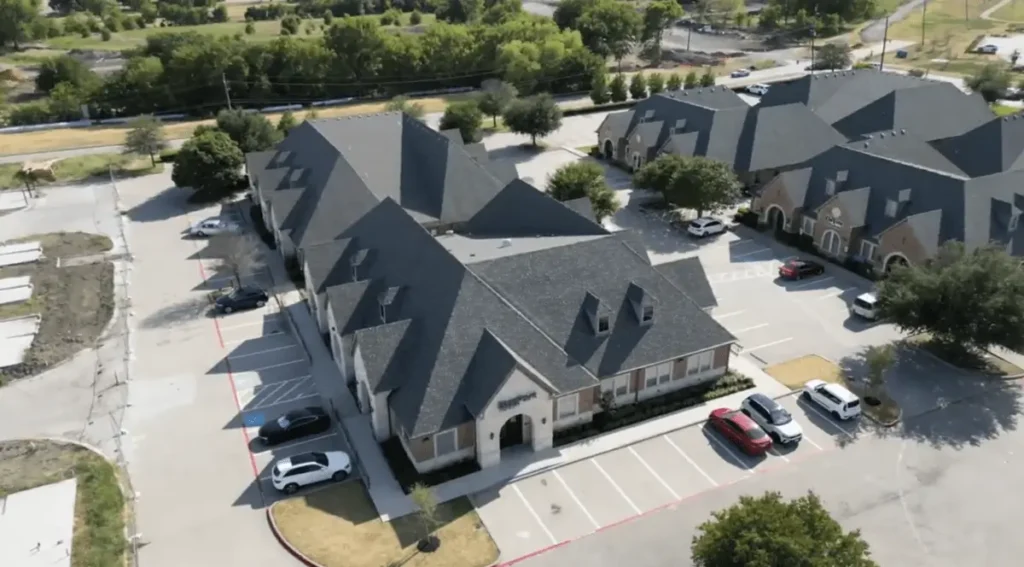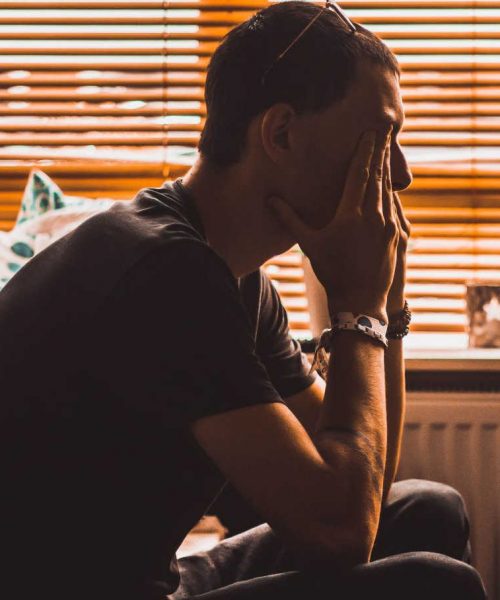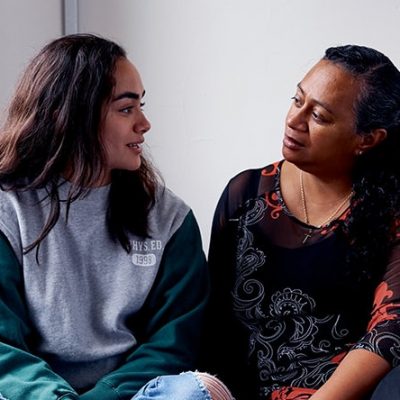Urgent Psychiatric Care for Teens and Adolescents in Dallas, Texas
BasePoint Academy provides urgent psychiatry programs for teens in Dallas, Texas. We specialize in treating teens’ mental health issues, including depression, anxiety, and bipolar disorder, with clinical expertise in adolescent psychology. If you need urgent teen psychiatry services in Texas for your child, call (972) 357-1749. However, if this is a medical emergency, dial 911 immediately.
We offer free mental health assessments to determine the proper care level and tailor treatment to individual needs. In addition, our same-day admissions facilitate early intervention and emergency psychiatry for teens, which can often be the difference between a crisis and recovery. On this page, learn more about teen psychiatry mental health services in Dallas and how to access exceptional treatment for improved teenage well-being.
Learning About Adolescent Psychiatric Care Programs
An adolescent psychiatric care program provides specialized mental health treatment for youth during the critical period of adolescent development. It focuses on diagnosing and treating mental illnesses such as depression, anxiety, bipolar disorder, and schizophrenia. These programs address the unique challenges of adolescence, recognizing that this demographic can be particularly vulnerable to mental health issues.
By offering a safe and supportive environment, these programs help teens develop coping strategies, improve emotional regulation, and work through psychiatric disorders. Treatment plans are often comprehensive, involving psychotherapy, medication management, and family involvement to ensure holistic care and long-term recovery.
Insurance Coverage For Urgent Teen Psychiatric Care
Our complimentary assessment with a licensed clinician will provide you with a recommendation for the appropriate level of care for your teen struggling with mental health. We can also check your insurance coverage levels.
Call us today to schedule a complimentary same-day assessment at (972) 357-1749 or complete our inquiry form.
Teen Urgent Psychiatric Care Admissions Form
Contact BasePoint Academy Today
Contact us today to schedule a free confidential assessment for your teen with a licensed clinician.
You can also get in touch to talk with our mental health experts about treatment needs, care options and your insurance coverage levels.
Call: (972) 357-1749Check Your InsuranceWhat Do Psychiatrists Do to Help Teens & Adolescents?
Psychiatrists conduct thorough psychiatric evaluations to diagnose adolescent mental health issues, identifying conditions such as depression, anxiety, ADHD, and mood disorders. Beyond diagnosis, psychiatric care for teens and adolescents involves a nuanced understanding of adolescent behavior and the unique teenage challenges, like identity formation and teenage peer pressure, that can exacerbate conditions.
Psychiatrists guide teens toward emotional stability and healthier coping mechanisms through adolescent therapy, medication management, their expertise in psychopharmacology, and ongoing evaluations. These medical professionals help teens build resilience for a brighter future.
What is the Most Common Psychiatric Emergency in Teens and Adolescents?
The most common psychiatric emergency in teens and adolescents is suicidal ideation or attempts. This crisis often arises from underlying and common adolescent mental health issues such as mood disorders like depression and bipolar disorder or severe anxiety. This requires immediate intervention to ensure the teen’s safety and well-being.
When teenage emotions become too painful or overwhelming, suicidal thoughts can surface as a way to escape this intensity. These situations are particularly urgent because they can escalate quickly, making it crucial to seek professional help. Mental health professionals may use crisis stabilization techniques, psychotherapy, and sometimes hospitalization to address the immediate risk and develop a longer-term treatment plan.
What are the Indications of a Teenage Psychiatric Emergency?
Indications of a teenage psychiatric emergency often include sudden or extreme changes in behavior, thoughts, or emotions that signal a serious behavioral health crisis. These emergencies can be triggered by overwhelming teenage stress or underlying disorders such as depression, anxiety, or psychosis and usually require immediate attention to prevent harm. Common signs include:
- Intense and prolonged suicidal thoughts
- Severe aggression or violence
- Extreme withdrawal from social interactions
- Self-isolation
- Hallucinations or delusional thinking
- Paralyzing anxiety or panic attacks
It’s crucial for parents, caregivers, and peers to recognize the signs and seek urgent help. Contact us today if you’ve noticed rapid or drastic shifts in your child’s behavior, thoughts, or emotions.
What Is Treated in Urgent Emergency Mental Health Care for Teens in Dallas, Texas
Urgent emergency mental health care for teens in Dallas, Texas, treats acute psychiatric crises that require immediate attention. This includes conditions like severe depression, suicidal ideation, anxiety disorders, and psychotic episodes, where an urgent psychiatrist for teens in Dallas is essential to provide rapid intervention.
In these urgent situations, teens may experience overwhelming symptoms that cannot wait for a regular appointment. For example, urgent psychiatry for depression in teens often addresses intense feelings of hopelessness, self-harm behaviors, or extreme anxiety. Treatment typically involves a combination of crisis intervention, stabilization, and developing a short-term plan to ensure the teen’s safety and well-being until long-term care can be established.

BasePoint Academy Accepts health Insurance
We accept most major health insurance providers in Texas and can check your treatment coverage levels on your behalf.
Psychiatric Care Programs in Dallas, Texas that Take Urgent Admittance
Urgent Psychiatric Care in Arlington, Texas
Arlington, located between Dallas and Fort Worth in Tarrant County, is a vibrant city known for its business, education, and entertainment mix. This ideal locale to seek psychiatric care is the seventh-largest city in Texas. It’s also home to the University of Texas at Arlington, the Dallas Cowboys, the Texas Rangers, and major corporations like American Airlines.
- BasePoint Academy – Arlington, Texas: 3900 Arlington Highlands Blvd, Suite 237, Arlington, TX 76018, United States
Urgent Psychiatric Care in Forney, Texas
Forney is a rapidly growing city in Kaufman County. It’s home to various businesses and industries, including the Forney Independent School District and the Forney Chamber of Commerce. Due to its proximity to Dallas, Texas (about 20 miles east), the city is an attractive community for families and professionals and an optimal environment for psychiatric care.
- BasePoint Academy – Forney, Texas: 713 W Broad St, Suite 200, Forney, TX 75126, United States
Urgent Psychiatric Care in McKinney, Texas
McKinney, a thriving city in Collin County about 30 miles north of Dallas, has a population exceeding 200,000. It boasts a range of well-known companies, including Toyota Motor Manufacturing Texas, Raytheon Technologies, and Liberty Mutual Insurance. Its blend of rapid growth and community charm makes it an appealing place for families seeking teen psychiatric mental health services in Dallas.
- BasePoint Academy – McKinney, Texas: 4733 Medical Center Drive, McKinney, TX 75069, United States
Best Ways to Find a Psychiatrist for Teens in Dallas for Urgent Care and Therapy
Finding affordable and accessible mental health care services for teens near Dallas, Texas, can be challenging. However, it’s not impossible. Below, we’ve provided some steps to help you find the best teen psychiatrist in Dallas, Texas, for urgent care and psychotherapy:
Ask for Recommendations: Consult your teen’s pediatrician, school counselor, or primary care physician. They can often provide referrals to trusted psychiatrists who specialize in adolescent care.
Check with Your Insurance Provider: Contact your health insurance provider to find psychiatrists within your network. This can help reduce out-of-pocket costs and narrow your options to those covered by your plan.
Research Online Directories: Use online directories like Psychology Today, Zocdoc, and Healthgrades to find local psychiatrists specializing in teens’ mental health. These platforms allow you to filter by location, specialty, and accepted insurance.
Read Reviews and Testimonials: Once you have a list of potential psychiatrists, read reviews and testimonials to gain insight into their approach, communication style, and effectiveness in treating teens.
Consider Specialties and Expertise: Look for psychiatrists with experience in treating specific issues your teen is facing, such as anxiety, depression, ADHD, or substance abuse. This ensures that the care is tailored to your teen’s needs.
Consider Accessibility and Convenience: Choose a psychiatrist whose office location, hours, and appointment availability align with your teen’s schedule. Accessibility is key to ensuring regular attendance and effective ongoing treatment.
Trust Your Instincts: Ultimately, trust your instincts. Pay attention to how comfortable you and your teen feel during the initial consultation and whether the psychiatrist can provide the care your teen needs.
- Arlington, Texas: 3900 Arlington Highlands Blvd, Suite 237, Arlington, TX 76018
- Forney, Texas: 713 W Broad St, Suite 200, Forney, TX 75126
- Frisco, Texas: 8275 Judges Way, Suite 100I, Frisco, TX 75036
- McKinney, Texas: 4733 Medical Center Drive, McKinney, TX 75069

What is the BasePoint Difference?

7am to 7pm CST
7 Days a Week

Full Time Physican
On Site

We Transport
To and From

Therapy Involving
the Whole Family

Family
Owned


What is The Difference Between a Psychiatrist and a Therapist for Teens and Adolescents?
The difference between a psychiatrist and a therapist for teens lies primarily in their training, education, and treatment approach. A psychiatrist is a medical doctor who can diagnose mental health disorders and prescribe medication. They often focus on the biological aspects of mental health, such as brain chemistry and neurology.
On the other hand, a therapist provides talk therapy and counseling. Like psychiatrists, therapists can be trained in various specialties, including clinical psychology or psychoanalysis. They help teens explore their emotions, thoughts, and behaviors through different therapeutic techniques. While psychiatrists may address mental health issues with a medical approach, therapists often focus on understanding and resolving psychological and emotional challenges.
Statistics and Information on Psychiatric Care Programs in Texas
Texas faces a critical shortage of child and adolescent psychiatrists, with a projected deficit of 1,043 by 2032. In 2022, Texas Children’s Hospital reported that 400 to 450 children monthly experience a behavioral health crisis, and data from the Texas Department of State Health Services showed that emergency departments saw 40,254 visits from youth with mental health issues that year.
The American Academy of Child and Adolescent Psychiatry suggests that 47 psychiatrists are needed per 100,000 children, but Texas has only 12, with Dallas County having about 16. Meanwhile, a 2022 study by the National Alliance on Mental Illness revealed that one in six adolescents in the Lone Star State faces a psychiatric disorder annually. Yet, approximately 64.7% of this age group does not receive mental health care.
What Types of Urgent Psychiatric Care Programs Are Available for Teens in Dallas-Fort Worth?
In the Dallas-Fort Worth area, there are several types of urgent psychiatry programs for teens facing mental health crises. These programs provide immediate support and intervention for conditions like severe anxiety, depression, and other psychiatric disorders. Below, we’ve briefly outlined some of these options.
Immediate Inpatient Residential Psychiatric Care for Teens
Immediate inpatient residential psychiatric care for teens offers a secure, structured environment where they can receive around-the-clock support for severe mental illnesses. This level of care is essential for teens who need intensive treatment, close monitoring, and a safe space to stabilize and begin their recovery.
Urgent Teen Partial Hospitalization Programs (PHP)
Urgent teen Partial Hospitalization Programs (PHPs) provide a structured, intensive treatment option for teens who need more support than traditional outpatient care but do not require full-time residential treatment. These programs offer comprehensive treatment, including therapy, youth counseling, and medical oversight during the day, allowing teens to return home in the evenings.
Urgent Teen Intensive Outpatient Programs (IOP)
Urgent teen Intensive Outpatient Programs (IOPs) offer flexible yet intensive support for teens dealing with mental health challenges. These programs provide structured therapy and counseling sessions several times a week, allowing teens to live at home and attend school. IOPs are ideal for addressing significant issues, helping teens manage their symptoms, and integrating coping strategies into their daily lives.

Contact BasePoint Academy Today
Contact us today to schedule a free confidential assessment for your teen with a licensed clinician.
You can also get in touch to talk with our mental health experts about treatment needs, care options and your insurance coverage levels.
Call: (972) 357-1749Check Your Insurance
Signs Your Teenage Boy or Girl Might Need Immediate Psychiatric Care
Parenting teenagers comes with unique challenges, especially when it comes to recognizing signs that your child may need immediate psychiatric care. It’s essential to be aware of sudden changes in behavior or mood that could indicate a serious mental health issue. Quickly accessing the proper teen mental health resources can make all the difference in their well-being.
Social Withdrawal and Isolation
Social withdrawal and isolation in teenagers can be a significant indicator of underlying mental health issues. If your teen starts avoiding friends, family, and activities they once enjoyed, it could indicate feelings of depression, anxiety, or other emotional struggles. Paying attention to these changes and seeking help early can prevent more serious problems down the line.
Sleep and Appetite Changes
Noticeable changes in sleep and appetite can be red flags for mental health issues in teenagers. If your teen is sleeping too much, struggling with insomnia, or experiencing sudden weight loss or gain, these could be signs of depression, anxiety, or other emotional and behavioral health challenges. Immediately addressing these changes is crucial to ensure your teen’s overall well-being.
Self-Harm and Suicidal Thoughts
Self-harm and suicidal thoughts are serious indicators that your teen is experiencing psychological distress and needs immediate psychiatric care. If you notice signs like unexplained injuries, talk of hopelessness, or your child mentions wanting to end their life, it’s crucial to seek professional help right away. Early intervention can be vital to providing your teen with the necessary support.
Psychotic Symptoms and Disorganized Thinking
Psychotic symptoms and disorganized thinking, such as hearing voices, seeing things that aren’t there, or having confused or jumbled thoughts, are critical signs that your teen needs urgent psychiatric care. These symptoms can be frightening and indicate a severe mental illness like schizophrenia. Seeking immediate help is essential to ensure your teen’s safety and begin appropriate treatment for psychotic disorder.
Mood and Behavior Changes
Sudden mood and behavior changes in your teen, such as extreme irritability, anger, or dramatic shifts in personality, can be signs of underlying mental health issues. If these changes are persistent or intense, they may indicate conditions like bipolar disorder or depression. Paying attention to these shifts and seeking professional guidance can help address potential problems before they escalate.
Developmental Regression
Developmental regression in your teen, such as reverting to behaviors typical of a younger child, can be a concerning sign of emotional or psychological distress. If your teen starts displaying habits like bed-wetting, clinginess, or a loss of previously mastered skills, it’s essential to seek professional help.
Substance Use and Risky Behaviors
If you’re witnessing your teen engage in substance use and other risky behaviors, this can be a sign of more profound emotional struggles. These actions often reflect an attempt to cope with underlying mental health issues. Addressing these behaviors early with professional support can help your teen find healthier ways to manage their emotions and prevent long-term consequences.
Trauma Reactions
Trauma reactions in your teen, such as intense fear, flashbacks, or avoidance of reminders related to a traumatic event, are crucial indicators of distress. If your teen exhibits signs of trauma, it’s essential to seek immediate help from mental health professionals. Timely intervention can provide the support needed to process and heal from the trauma effectively.
Does Health Insurance Cover Psychiatrists for Teens and Adolescents?
Yes, health insurance often covers psychiatrists for teens and adolescents, but coverage details can vary. To find out what’s included in your plan, check your insurance for specific information about mental health services. This will help you understand which psychiatrists are covered and what out-of-pocket costs you may need to cover.
Coverage usually includes a range of services, from psychiatric evaluations to therapy and medication management. However, reviewing your plan’s network of providers and any potential exclusions or limitations on coverage is important. By confirming your insurance details, you can ensure you find a psychiatrist who fits both your teen’s needs and your financial situation.

Contact BasePoint Academy Today
Contact us today to schedule a free confidential assessment for your teen with a licensed clinician.
You can also get in touch to talk with our mental health experts about treatment needs, care options and your insurance coverage levels.
Call: (972) 357-1749Check Your InsuranceWhich Health Insurance Providers Cover Psychiatric Care for Teenagers in Dallas, Texas?
Several major health insurance providers in Dallas, Texas, cover psychiatric care for teenagers. Notable providers include Blue Cross Blue Shield of Texas, UnitedHealthcare, Cigna, and Aetna. These insurers typically offer coverage for various mental health services, including visits to psychiatrists, therapy sessions, specialized therapies like Cognitive-Behavioral Therapy (CBT), and medication management.
To ensure you’re getting the most accurate information, check with your specific insurance provider about their coverage details for psychiatric care. We can provide details related to specific services to help you understand the scope of benefits and any potential out-of-pocket costs.

How Much Does Urgent Psychiatric Care for Teens Cost in Dallas, Texas?
Urgent psychiatric care costs for teens in Dallas, Texas, can vary depending on the type of care needed and whether you have insurance. On average, an urgent psychiatrist for teens in Dallas may charge $150 to $500 per session without insurance. A psychiatric evaluation may incur additional expenses, while a partial hospitalization program averages between $350 and $450 a day.
If you have health insurance, check your policy to understand the coverage and out-of-pocket costs for urgent psychiatric care. Many insurance plans cover a significant portion of these expenses, but confirming the specifics is essential to get a clear picture of your financial responsibilities.
Contact The BasePoint Academy Today!
Statistics Related to Psychiatrists and Urgent Psychiatric Care Programs in Texas
- The Texas Department of State Health Services forecasts a shortfall of 1,043 psychiatrists by 2032.
- In 2022, Texas Children’s Hospital in Houston reported that 400 to 450 children each month are experiencing a behavioral health crisis.
- Data from the Texas Department of State Health Services revealed that in 2022, children and youth with mental, behavioral, or emotional issues visited emergency departments 40,254 times.
- The American Academy of Child and Adolescent Psychiatry estimates that the country requires 47 child and adolescent psychiatrists (CAPs) per 100,000 children. Currently, Texas has approximately 12 CAPs per 100,000 children, indicating a severe shortage of child and adolescent psychiatric care providers in the state. Dallas County, specifically, has about 16.
- A 2022 study by the National Alliance on Mental Illness (NAMI) found that roughly one in six adolescents aged 6 to 17 in Texas experiences a psychiatric disorder each year. Despite this, about 7% of Texans (12-17) don’t receive any mental health care.








